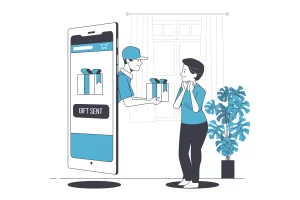Getting clients to complete forms before their healthcare appointments might not sound like the most exciting part of your healthcare practice, but it’s a vital component of ensuring a smooth and successful experience for both you and your clients.
These forms can contain crucial information about a client’s medical history, allergies, and personal preferences and help you tailor your services to their specific needs and ensure their safety throughout the appointment.
In this blog, we’ll explore:
- The importance of consent forms and questionnaires
- The risks of not having forms completed before an appointment
- Why clients sometimes may hesitate to fill out forms
- Help you implement strategies that encourage compliance
- How to make the form completion process seamless with Pabau
Why are medical forms important?
Think of medical forms as the unsung heroes of the healthcare world. They quietly work behind the scenes, making sure both clients and practitioners have a safe and satisfying experience.
They ensure you collect all the information you need, ensure you can proceed with the treatment safely, and make sure you’ve protected yourself in the unlikely event of something going wrong.
Building medical forms into your booking process is of great importance for any healthcare practice. They benefit your clients, act as a prompt and a guide for practitioners, and work as a documentation tool that you can refer to in the case of complaints or compliance audits.
5 smart ways medical forms help your practice
1. Get client’s consent
Every treatment needs an official ‘thumbs up’ from the client before it goes ahead.
The way you do this is with a signed consent form from your client. This shows that the client is happy to go ahead – and protects your business from legal liability. Make it a non-negotiable habit to collect client signatures before any treatment.
2. Help you get to know your clients better
Every new customer should receive a new client intake form before their appointment.
This will enable you to get your client’s basic information ahead of their first visit, but you can also use it to dig deeper. If relevant to the treatment, you can ask questions about their lifestyle such as whether they smoke or whether they take any medication.
3. Capture important information
Depending on what service you’re offering, obtaining your client’s medical history will help you spot any potential health risks, conditions, medications and allergies. Without this information, you risk your clients’ safety and your practice’s reputation.
4. Assess whether a client is a good fit
You can assess if your clients received treatments elsewhere or if they have any medical conditions that might deem them unsuitable for your services.
Not every client will be a good match for you. Forms serve as a screening tool to help you select clients who align well with your practice and your qualifications.
5. Ensure client information is up to date
It’s vital for keeping yourself well-informed about any changes in your client’s health status. Any changes to personal circumstance, like pregnancy or using a new medication, can impact treatment. By maintaining current and accurate medical records, you can provide the best possible care and ensure their well-being is always the top priority.
Risks of not having clients complete medical forms before an appointment
In simple terms, if you don’t get proper consent, you could face disputes and legal issues. These problems arise when there’s no clear evidence that the client agreed to a procedure or if they claim they didn’t know about the risks or what to do afterward.
To deal with this, having a record of the consent discussion is crucial. It shows that the client understood the risks and agreed to them, making it easier to handle complaints or legal challenges.
Additionally, some insurance policies require consent forms, which can affect your insurance coverage.
Remember, consent isn’t just a signature; it’s a process involving open communications and providing essential information to help clients make informed decisions. So, documenting these discussions is essential to protect both you and the client.
Risks of not having up-to-date medical forms
Neglecting the update of crucial information such as allergies, prescriptions, and undisclosed medical conditions can lead to various complications.
Outdated medical records can result in practitioners administering treatments or medications that trigger severe allergic reactions, leading to health complications and potential liability issues.
Furthermore, the lack of transparency can lead to misdiagnosis, inappropriate treatments, and compromised outcomes. For example, failing to acknowledge a client’s pregnancy can lead to treatments contraindicated during this period.
Why use digital forms instead of paper forms
| Paper forms | Digital forms |
|---|---|
| Manual data-entry is time-consuming Instead of focusing on providing quality care to clients, your staff end up spending precious time manually entering data from paper forms into your system. |
Save time in practice Cutting paperwork means staff work smarter, freeing up time to boost client satisfaction. |
| Higher risk of errors Juggling front desk duties and phone calls while entering data inevitably leads to typos and missed information, potentially compromising patient records. s |
Increased accuracy Spare your staff from manual data entry by sending clients a form link; it enhances accuracy and efficiency. |
| Inaccurate information Answers can sometimes be hard to read due to the client's handwriting, causing data collection inefficiencies. This can have adverse effects on patient care and the overall experience. |
Eliminate errors Digital forms increase the likelihood of receiving accurate and complete responses, guiding clients and ensuring uniform data collection. |
| Data loss and quality degradation Paper forms can go missing or suffer damage due to various reasons like misfiling, theft, or natural disasters. Digital forms are resilient and immune to such issues. |
First impressions count The intake process is your first client interaction; seize the opportunity to make a stellar first impression. It showcases your business style and service quality, so put your best foot forward. |
| Multiple follow-ups Without digital guidance, incomplete or improper submissions lead to multiple follow-ups, causing delays in client care. Forgotten essential documents can compound these issues. |
Prevent client frustration Sending digital medical forms ahead of time is a smart move. With online intake forms, your staff can have everything organized before clients even walk in, leaving a lasting positive impression. |
| Document unavailability Clients forgetting important documents like insurance papers or IDs can stall the onboarding process. You may process with the visit, but further follow-ups are necessary to complete intake. |
Convenience matters A smooth client onboarding reassures their choice. Letting them complete forms at home is convenient and frees your staff for essential duties. |
How to make the form completion process seamless and efficient with Pabau
What if we told you there’s a solution that could improve your compliance and reduce the time spent on forms in the practice?
The answer is Pabau Practice Management Software.
1. Build forms into the online booking process
When a client books an appointment using Pabau, a form for that service is sent to them at the time of booking. It’s fully automated, the forms are linked to the service in the system, and it all happens as soon as it’s booked.
Offering your clients the chance to book their own appointments online is a game-changer, and it’s a breeze with Pabau.
2. Enable clients to update forms on the client portal
One standout feature of Pabau’s client portal is its ability to simplify form management.
With Pabau’s Connect Portal, you put your clients in control. Clients have the autonomy to update their medical information directly via the portal, rather than having to do it via your team when they come into the clinic for their appointment.
Clients can access the forms they need to complete from their preferred device and submit and edit them at any time, even outside of your office hours. This streamlines the whole process, reduces the workload of your reception staff, and enhances the client experience by making it easier for them!
3. Service specific forms
With Pabau, we’ve got your back when it comes to forms specific to the service you offer. You can choose one of the 2000 forms we have in our template library, and start from there. They include forms such as: Microneedling Consent Form, Chemical Peel Consent Form, Dermaplaning Consent Form, IV Therapy Consent Form etc.
These forms are built-in and designed to make collecting client data a breeze, all while ensuring it’s handled with the utmost security by your staff.
4. Accurate information
With a paper form, a client can simply skip a question they don’t want to answer.
Not with Pabau! Digital submission ensures clients can’t skip essential questions. Plus, autofill and autocomplete features help reduce typos and input errors, ensuring you receive data in a standardized format.
Pabau allows you to make certain questions mandatory, ensuring that clients must provide answers before submitting the form.
5. Paperless process
No more physical copies of identification and documents; clients can effortlessly upload digital versions, streamlining the process for all parties involved.
The transition to digital document uploads not only simplifies administrative tasks but also reduces paper waste, contributing to a more environmentally-friendly approach.
6. Automatic integration
Once patients submit these digital forms, their responses seamlessly integrate with your practice management software, automatically populating the client card. Manual data entry becomes a thing of the past, saving your staff time and effort.
7. Customizable digital forms
Elevate your booking process with Pabau’s user-friendly form builder, designed to provide a seamless client experience.
Customize consultation forms, informed consents, and treatment templates to tailor each client’s journey. Pabau offers a vast library of consent form templates, ensuring clients sign with ease and style, matched to your clinic’s branding with color, font, and logo customization options.
You can create your own questions using open text fields, checkboxes, or drop-down options, making it quick and easy for your clients to complete forms. If they need to save and return later, Pabau accommodates this too.
Pabau even automates data entry by populating fields with known client information, making your consent form administration effortless and efficient.
8. Patient journey on the iPad
Having the Pabau Connect app on an electronic device is an integral step in ensuring a seamless and fool-proof process for every client’s visit to your practice.
With Pabau, clients can efficiently sign consent forms and update their medical details upon arrival, guaranteeing that everything is up-to-date and properly documented before their appointment. This not only enhances the overall client experience but also ensures that all necessary steps are taken for their care.
9. Last History Completed feature
In Pabau 2, we’ve added a new cool feature called History Last Completed. This essentially gives you insights into the date when your client has last completed an online form prior to their appointment.
But that’s not all – you can take it a step further and set up notifications to receive real-time alerts whenever a client finishes a form. Stay in the know and be fully prepared for your next appointment.
With Pabau, you get an all-in-one client communication management platform. It’s like your trusty sidekick, equipped with reminders, recalls, secure messaging, and even custom marketing campaigns and templates.
Essential client information to collect in a basic medical form
When you’re customizing your digital client intake form in Pabau, it’s crucial to ensure you gather all the vital information needed to kickstart your client’s treatment journey. You can refer to the checklist below to ensure your form covers all the bases:
- First up, we’ve got Personal details: this initial section of the form covers the basics, like the client’s full name, phone number, email address, home address, date of birth, gender, and their preferred method of contact. It’s the foundation of your client profile.
- Next, consider Demographic information: Gathering details such as age, occupation, marital status, and location offers valuable insights into your client’s lifestyle risks. This information helps you tailor their care effectively.
- Don’t forget Medical history: Encourage clients to disclose their complete health history. This comprehensive overview is vital before they embark on their treatment journey with you. The more thorough, the better.
- Current medication: During onboarding, it’s important to inquire about any medications they’re currently taking. This knowledge assists in shaping their treatment plan.
- Past treatments: As a professional, it’s essential to be informed about any previous treatments and surgeries your clients have undergone before they become a part of your practice.
- Understanding their Lifestyle: Gaining insights into their daily life, habits, preferences, and work nature provides a holistic view of your client’s well-being.
- Moving on to Payment details: In this section, you can request insurance provider information, payment preferences, and even credit card details for seamless transactions.
- For the sake of convenience, offer an option for Documentation: Instead of relying on physical copies, enable clients to easily upload essential documents such as ID proofs, insurance card details, and photos directly onto their Patient Portal.
- Finally, Digital signature: To wrap up the intake process, ask for their digital signature. This signifies their consent to use their information for treatment purposes and marks the completion of the onboarding process. It’s the digital seal of approval.
Ensuring your digital client intake form covers these aspects sets the stage for a comprehensive and efficient client journey.



